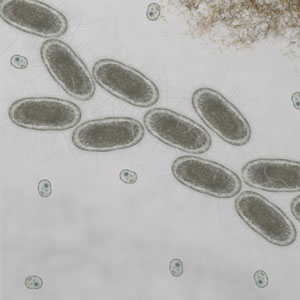E.Coli crackdown high on EHO agenda?
- Like
- Digg
- Del
- Tumblr
- VKontakte
- Buffer
- Love This
- Odnoklassniki
- Meneame
- Blogger
- Amazon
- Yahoo Mail
- Gmail
- AOL
- Newsvine
- HackerNews
- Evernote
- MySpace
- Mail.ru
- Viadeo
- Line
- Comments
- Yummly
- SMS
- Viber
- Telegram
- Subscribe
- Skype
- Facebook Messenger
- Kakao
- LiveJournal
- Yammer
- Edgar
- Fintel
- Mix
- Instapaper
- Copy Link
Posted: 2 April 2012 | instinctivepr | No comments yet
Food operators are being warned of an apparent crackdown by EHOs, and encouraged to do everything they can to eliminate E.Coli…


Preliminary bacteriological tests found the E.coli strain O104:H4 to be present in two of the cases
Food operators are being warned of an apparent crackdown by EHOs, and encouraged to do everything they can to eliminate E.Coli by implementing recommended control measures.
Commenting, Janet Cox of health and safety experts, Perry Scott Nash, said: “Around this time last year the FSA issued new guidance on eliminating and controlling E.Coli. Across the country we are noticing more Environmental Health Officers (EHOs) looking at, and referring to control measures, cross contamination etc. due to E.Coli, so our advice would be that food operators should brace themselves for another crackdown”.
Bacteria, such as E. coli 0157 cannot be seen by the naked eye and can easily be spread to food without you realising. They can make customers seriously ill, and can even kill. If your business handles raw food as well as ready to eat food, there will be a greater risk. Businesses are being encouraged to ensure that they implement the necessary measures to control the risk of contamination.
With EHO’s rightly focusing their attentions on this hidden killer, we’ve provided a simple guide to control and prevent contamination:
You should know that…
All food businesses are required to put in place food safety procedures based on the principles of HACCP (Hazard Analysis Critical Control Point), which include controls to manage cross contamination and the risk associated with E.coli 0157. All food operators should ensure that the following control points are incorporated into their day to day food safety operation as soon as possible.
- Stopping E.coli 0157 from spreading
* Identification of separate work areas, surfaces and equipment for raw and ready to eat foods is the only certain way of preventing E. coli 0157 contamination.
* Use of separate storage and display facilities, including refrigerators and freezers. Where separate units are not provided, the clean areas should be sufficiently separated and clearly identifiable, with raw food stored below ready to eat foods.
* Use of separate machinery and equipment, such as vacuum packing machines, slicers and mincers, for raw and ready-to-eat foods. Where this equipment is used for ready to eat food, it should be kept in the designated clean area.
* Separate chopping boards and utensils must be used for raw and ready to eat foods unless cleaned and disinfected between use, ideally in a commercial dishwasher.
* Packaging materials for ready-to-eat food should be stored in a designated clean area and the outside surfaces of any wrapping materials for ready-to-eat food brought into a clean area must be free from contamination. It may be possible to establish an assurance of cleanliness with your supplier.
* Cash registers and other non-food equipment should not be shared by staff handling ready-to-eat food and staff working in other areas. A single cash register can be used, but staff must ensure their hands and clothing is clean when moving into the designated clean area. - Cleaning and disinfection
* If using a dishwasher, water reservoirs should be kept above 80°C for at least 15 seconds. Dishwashers should be cleaned regularly, including the removal of food debris, plastic wrapping and limescale from the water jets, filters and drains.
* Work surfaces and equipment should be cleaned regularly and disinfected between tasks. Single-use, disposable cloths should be used wherever possible.
* The two-stage process for effective disinfection should be followed:
– Use a cleaning product to remove visible dirt, food particles and debris, and rinse to remove any residue.
– Apply disinfectant using the correct dilution and contact time, according to the manufacturer’s instructions, and rinse with clean water. - Hand washing
* Adequate facilities should be provided for hand washing and all staff should be trained in hand washing techniques. It is particularly important to wash hands before touching ready-to-eat food, after going to the toilet, after touching raw meat or surfaces that might have come into contact with staff handling raw food.
* Separate hand washing basins with hot water, liquid soap and drying facilities must be made available.
* Anti-bacterial hand gels should not be used instead of thorough hand washing.
* Hands should be kept clean to prevent contamination of handles. - Handling food
* Use tongs and other utensils to handle food
The Food Standards Agency’s guidance and factsheet on E.Coli are available from:
http://www.food.gov.uk/multimedia/pdfs/publication/ecoliguide0211.pdf
http://www.food.gov.uk/multimedia/pdfs/publication/ecolifactsheet0211.pdf






